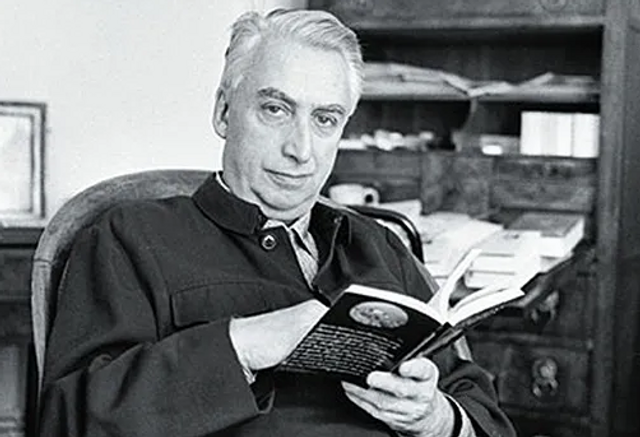
Roland Barthes
Roland Barthes was a French philosopher, literary critic, and semiotician who rose to prominence in the mid-20th century. His ideas about the relationship between language, culture, and meaning continue to influence contemporary critical theory, literary criticism, and cultural studies.
Born in Cherbourg, France, in 1915, Barthes grew up in a middle-class family and went on to study at the Sorbonne, where he earned degrees in classical letters and grammar. He went on to work as a research assistant at the Centre National de la Recherche Scientifique and taught at the University of Alexandria in Egypt. He later became a professor of literature and aesthetics at the École Pratique des Hautes Études and the Collège de France.
Barthes was known for his innovative approach to literary criticism, which focused on the ways in which meaning is constructed through language and culture. He developed the concept of "the death of the author," which argues that the meaning of a text is not determined by the author's intention, but rather by the reader's interpretation. He also developed the concept of the "myth," which refers to the ways in which cultural ideas and values are constructed and perpetuated through language.
In addition to his contributions to literary criticism, Barthes also wrote extensively on photography, cinema, and popular culture. He was a prolific author, publishing dozens of books and essays throughout his career. Some of his most influential works include "Mythologies," "Writing Degree Zero," "S/Z," and "A Lover's Discourse."
Barthes' ideas have had a lasting impact on the field of literary criticism and beyond. His work has been influential in the development of post-structuralism, deconstruction, and cultural studies. His innovative approach to language and culture has been applied to a range of fields, including media studies, anthropology, and linguistics.
Despite his lasting influence, Barthes' work has also been subject to criticism and controversy. Some have argued that his ideas are too focused on language and culture, and that they neglect other important factors that shape human experience. Others have criticized his writing style as overly dense and difficult to read.
Roland Barthes was an important figure in the development of modern critical theory and literary criticism. His ideas about the relationship between language, culture, and meaning continue to influence scholars and researchers today, and his work remains an important touchstone for those interested in the ways in which we make sense of the world around us.
Learn more resource links: